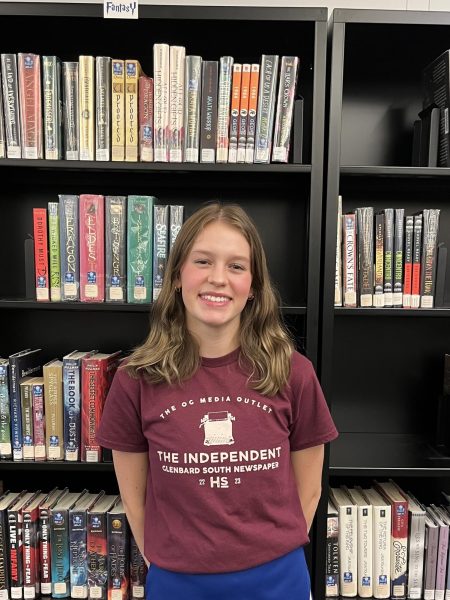In the fall of 2021, the Glenbard district ran the first semester of its new English elective: African American Literature. The course was designed by Mr. Brian Melton, an English teacher at Glenbard North, to expose students to more diverse literature starting in high school.
“As a white male educator, I wanted students to have the opportunity to be exposed to the richness of African American Literature in high school,” said Mr. Melton. “I wasn’t exposed to much until I took a Harlem Renaissance class in college, and I always wondered how my life would have been if I had been exposed to Black literature earlier.”
The content of the course varied from section to section, but Glenbard North’s curriculum mostly focused on essays, poetry and short stories. On the other hand, South’s class, taught by Ms. Jamea Harper, focused on two key books with other side lessons. At South, the two main books students read were “Homegoing” by Yaa Gyasi and “The Vanishing Half” by Britt Bennett, both of which are historical fiction novels written by Black authors. “In addition to that, we look at Afrofuturism, the vernacular tradition and complete an author study,” said Ms. Harper.
Around the same time that the class was being created, the state of Illinois passed the Dual Credit Act, which allowed students to get college credit through high school courses. Glenbard South, and many other schools like it, began offering Dual Credit English options for seniors wanting to get some of their college credits out of the way. In addition, Illinois also encourages schools to push more students to higher level courses, which, for many, would be Dual Credit English. Unfortunately, this has led to a large reduction in enrollment in other English electives, including African American Literature.
“If you’re bound for a two or four-year university, you’re costing yourself money if you don’t take Dual Credit,” Mr. Melton explained. “This has further tightened numbers, so next year, African American Literature will not be running at North.”
At South this year, the class was unable to run due to a lack of enrollment. South, which is a smaller school than North and the other schools in the district, was unable to run the course this year, and likely will not be able to run it again. Ms. Harper added, “We just don’t have enough students to go around!”
African American Literature has been more than just an English class for many; it has also been a place for more students to connect. Mr. Melton explained, “I’m going to miss teaching the literature, but what I will miss the most is the class environment. Sure, our Black students get to see themselves represented in the literature, but it’s finding a class in their schedule their senior year where they get to laugh, relax, commune, and be themselves.”
“I think it’s important for students to have the opportunity to learn about different perspectives from literature, and also to see themselves in literature. A variety of offerings can fulfill both of those roles,” said Ms. Harper.



























